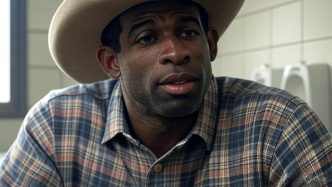The civil lawsuit filed against BYU quarterback Jake Retzlaff, alleging assault and battery on a Salt Lake County woman 18 months ago, has stirred significant concern, but according to prominent Salt Lake City lawyer Greg Skordas, it’s “problematic and damaging,” though not as severe as a criminal case would be. Skordas, a 38-year legal veteran and former Democratic candidate for Utah Attorney General in 2020, told the Deseret News that the suit, filed as “Jane Doe AG vs. Retzlaff, Jake,” is primarily financial in nature, seeking “greater than $300,000 each” for battery, assault, and intentional infliction of emotional distress. “It is much less damaging than would be a criminal case,” Skordas said. “I mean, a criminal case has significant consequences. For a rape, what could be five years to life in prison. This is a financial case, solely a financial case.”

The case, assigned to 3rd District Court Judge Coral Sanchez, saw an amended complaint filed Thursday by the plaintiff’s attorney, Terence L. Rooney, which Skordas described as mostly similar to the original, with some “technical stuff” corrected. As of Thursday evening, no criminal charges had been filed by the Utah County Attorney’s Office, where Retzlaff resides and where the alleged assault occurred. Provo police issued a statement denying the plaintiff’s claim that they discouraged her from filing a report, and Skordas believes the case might be better tried in Utah County, though he’s unsure if that’s crucial.
Retzlaff’s family retained California attorney Mark D. Baute, known for defending NBA star Derrick Rose in a rape case, who issued a statement declaring Retzlaff “factually innocent” and ready to prove it through the judicial system. The lawsuit could cost the Retzlaff family tens of thousands, potentially approaching six figures if it goes to a jury trial, which Skordas estimates could take a year and a half to two years.
For BYU, the situation is delicate. The university issued a statement acknowledging the lawsuit and affirming their serious approach to allegations, guided by Title IX processes. Retzlaff, who graduated with a degree in exercise and wellness and is the first Jewish quarterback in BYU football history, remains eligible for his final season but must take a graduate-level class. His status is complicated by BYU’s Honor Code, which includes standards on chastity and premarital sex. The Honor Code Office, responsible for addressing violations, typically resolves over 95% of cases without expulsion, but Retzlaff’s case could be an exception given its high profile.
This is a developing story, and for Retzlaff, BYU, and the plaintiff, the stakes are high. The civil suit’s financial implications are significant, but the potential Honor Code violation and lack of criminal charges add layers of complexity. Stay tuned, because this narrative is far from over, and the outcomes could shape Retzlaff’s career and BYU’s handling of such cases moving forward.







